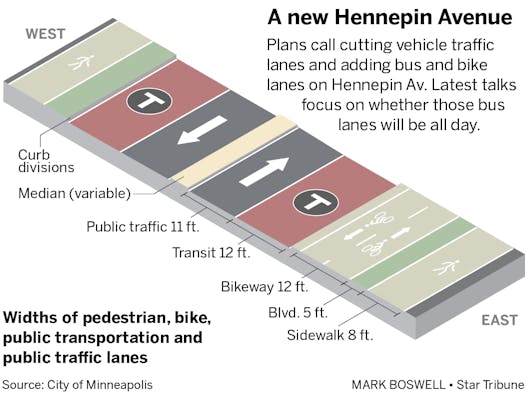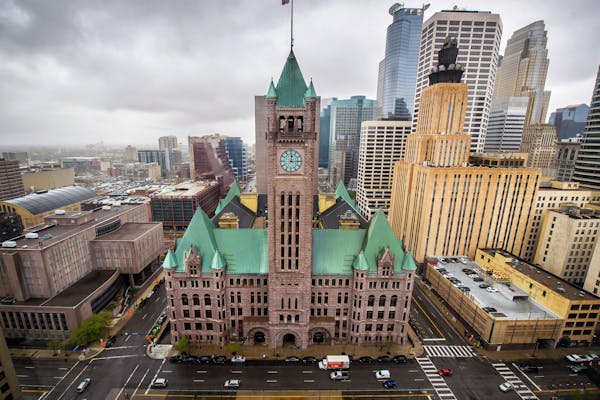The Minneapolis City Council is expected to attempt Thursday to overturn a Jacob Frey veto after the mayor nixed the current design to rebuild Hennepin Avenue and said no to a plan to have bus lanes in operation 24 hours a day.
The City Council on June 16 approved plans for the first major reconstruction of Hennepin Avenue through the Uptown neighborhood in more than 65 years with an 8-5 vote. But the next day, Frey rejected two of four resolutions associated with the project that calls for reducing the bustling thoroughfare to one travel lane in each direction and adding bike lanes, bus lanes and wider sidewalks.
"I hope on Thursday that the City Council would move forward with a broad public transportation plan and really stand by working-class people by offering reliable public transportation," said Council Member Robin Wonsley, who voted in favor of 24-hour bus lanes.
City Council would need nine of 13 members to vote yes to override the mayor's veto.
The layout would eliminate most on-street parking along the 10-block area, but does include loading zones adjacent to the bus lanes where people would be able to park and make deliveries.
The issue over parking has been a battle point in the project that has transit advocates pushing for round-the-clock bus lanes while business owners warning they could lose sales if curbside parking spaces are removed.
In turning down the proposal for 24-hour bus lanes, Frey said it would "ignore countless small businesses, many of them BIPOC-owned, who compromised both for the protected bike lane and prioritized bus lanes at the expense of a substantial amount of parking."
He said the businesses have already suffered from the pandemic, civil unrest and inflation and staffing shortages. "Let's show a willingness to work with them," he said.
In May, new Public Works Director Margaret Anderson Kelliher proposed the transit lanes be used only during part of the day and be available for on-street parking during off hours.
Metro Transit is planning a new bus rapid transit line on Hennepin Avenue connecting the University of Minnesota with downtown Minneapolis and the Southdale Transit Center in Edina starting in 2025. The agency has not said if the E Line would run 24 hours.
A neighborhood group called Hennepin for People has staged several rallies and members and supporters have sent more than 20,000 e-mails urging city officials to keep all-day bus lanes. On Tuesday, a group of about 50 supporters staged a march on Hennepin calling for the City Council to override Frey's veto.
"He said on the campaign trail 24/7 dedicated bus lanes would be his priority. … Here's his opportunity and he's failed us," Katie Jones, a spokesperson for Hennepin for People said before the march.
Business owners have also been vocal, sending letters to the mayor to keep parking on Hennepin. Byron Gulyard, owner of One 21 Barbers on Hennepin Avenue, went to the rally with an employee and a sign to protest the full-time bus lanes.
"Everybody just wants to hear themselves and not the small businesses," he said.
The current plan conforms with Minneapolis' efforts to reduce the city's carbon footprint and make corridors multi-modal. In his veto letter to the City Council, Frey said the city can still achieve its goals for climate and transit while preserving a reasonable number of parking places and offering transit services up to 24 hours a day.
"I am urging you to work with my administration and Public Works leadership team to do exactly that," Frey wrote.
If Thursday's vote to override the veto is unsuccessful, the measure would be sent back to the city's Public Works and Infrastructure Committee.
Construction on Hennepin is slated to begin in 2024 and take two years.

Want to share info with the Star Tribune? How to do it securely

'Safe recovery sites' would offer syringes, naloxone and more to people using drugs. The plan could be in peril.
New Minnesota GOP leaders seek peace with party's anti-establishment wing

Who is Republican Lisa Demuth, Minnesota's first House speaker of color?



